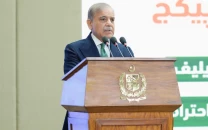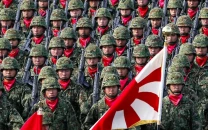Bridging the human rights divide: from ratification to reality in Pakistan
Pakistan's journey towards human rights progress reflects its commitment to justice and equality.

Human rights are the soul of a just society, and in Pakistan, this universal ideal is steadily evolving into a tangible reality. With its tapestry of traditions and diversity, it stands as a testament to a society that aspires to balance historical legacies with contemporary progress.
As one of the original signatories to the Universal Declaration of Human Rights (UDHR) in 1948, Pakistan’s early pledge to uphold human dignity and equality was a beacon of hope for the region.
Over the decades, the country has made strides toward this vision, with legislative milestones such as the Domestic Violence (Prevention and Protection) Act, 2012, Child Marriage Restraint Acts, and the Maternity and Paternity Leave Act, 2023.
These laws reflect Pakistan’s growing commitment to safeguarding the rights of its most vulnerable citizens, including women, children, and marginalised groups.
Institutions like the National Commission for Human Rights (NCHR) have further bolstered these efforts, showcasing the country’s dedication to creating a framework for accountability and justice.
The NCHR has been instrumental in addressing systemic issues, from child protection to labour rights, and has amplified the voices of those often overlooked.
With adequate resources and enhanced autonomy, the NCHR has the potential to become a cornerstone of human rights protection in Pakistan.
The momentum built by these developments presents a unique opportunity to bridge the gap between the ratification of international human rights treaties and their implementation in domestic law.
Pakistan’s commitment to seven core international treaties such as the International Covenant on Civil and Political Rights (ICCPR) and the Convention on the Elimination of All Forms of Discrimination Against Women (CEDAW) is not just a symbolic act. It is a call to action to align national frameworks with global standards.
The first step in this journey is comprehensive legislative reform. Pakistan’s laws increasingly reflect its commitment to human rights, but there is room to grow.
For instance, while child labor laws exist, further strengthening enforcement mechanisms can ensure that every child has the opportunity to thrive in a safe and nurturing environment.
Collaborative law-making processes, where civil society organizations, human rights experts, and policymakers work together, can yield innovative legislation that addresses local challenges while meeting international standards.
In addition to robust laws, strengthened institutions are vital for effective implementation. Pakistan has already made notable progress in enhancing judicial efficiency through initiatives like model courts and e-courts, which have reduced case backlogs and made justice more accessible.
These innovations demonstrate how technology can bridge logistical barriers, especially for marginalized communities. Expanding these initiatives nationwide, while investing in training programs for law enforcement, can further ensure justice is delivered swiftly and equitably.
Another critical area is public awareness. Many Pakistanis remain unaware of their rights, limiting their ability to claim protections under the law. Efforts to educate citizens through campaigns, community outreach programs, and educational reforms are already making a
difference. For instance, the Human Rights Awareness Programme, developed by the Ministry of Human Rights, aims to create awareness in targeted districts throughout Pakistan. Expanding these programs will foster a generation that understands and values justice, equality, and dignity.
The role of civil society organizations (CSOs) cannot be overstated. From advocating for legislative reforms to documenting human rights violations, CSOs in Pakistan have been instrumental in driving progress. Groups like the Human Rights Commission of Pakistan (HRCP) and Edhi Foundation exemplify the impact of grassroots efforts in promoting justice and equality.
Creating a more enabling environment for these organisations by streamlining registration processes and fostering government-CSO collaboration can amplify their contributions to human rights advancement.
International cooperation also plays a vital role in accelerating progress. Pakistan’s engagement with UN treaty bodies has fostered transparency and accountability, providing actionable roadmaps for addressing compliance gaps.
International partnerships, whether through technical assistance or capacity-building programs, can further strengthen Pakistan’s human rights ecosystem.
For instance, collaborations with countries that have successfully implemented treaty obligations can offer practical insights tailored to Pakistan’s needs.
While challenges remain, Pakistan’s trajectory in human rights offers reason for optimism. The progress made so far, coupled with the untapped potential of institutions like the NCHR and the growing engagement of civil society, signals a future where aspirations can transform into tangible realities.
By championing equality and justice, Pakistan has the opportunity to become a leader in human rights advocacy, not only in the region but globally.
Bridging the gap between ratification and implementation is not just a legal or administrative task, it is a profound commitment to the dignity and worth of every individual.
It is about realising a vision where justice prevails, where equality is not an abstract ideal but a lived reality. For Pakistan, this journey is both a challenge and an extraordinary opportunity, a chance to honour its foundational promise and emerge as a global exemplar of human rights.



















COMMENTS
Comments are moderated and generally will be posted if they are on-topic and not abusive.
For more information, please see our Comments FAQ